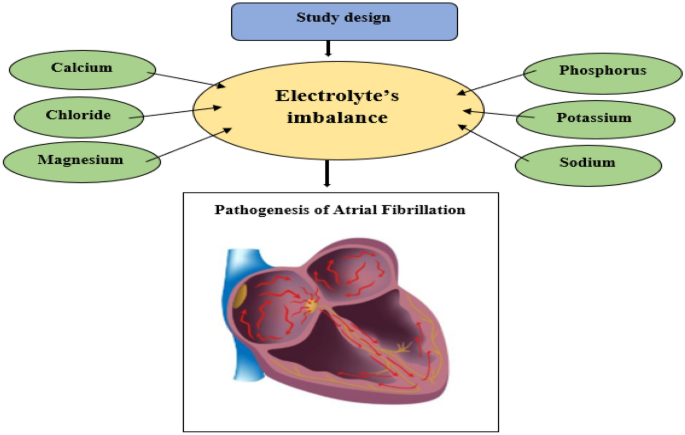Which Electrolyte Dominates Atrial Repolarization?
Depolarization And Repolarization Of Heart: Action Potential (Atrial \U0026 Ventricular) Animation
Keywords searched by users: Which electrolyte is responsible for the majority of atrial repolarization Depolarization, Hyperpolarization, Action potential in cardiac muscle
Which Electrolyte Causes Atrial Repolarization?
Potassium is the primary electrolyte responsible for atrial repolarization. Atrial repolarization is a crucial phase in the cardiac cycle, involving the resetting of the electrical charges in the heart’s atria after they contract. Potassium’s pivotal role extends beyond just repolarization; it also plays a significant part in atrial depolarization. Therefore, maintaining the right balance of potassium in the body is essential for normal heart function. An imbalance in potassium levels can lead to significant ECG (electrocardiogram) changes, which hold paramount clinical importance as they can serve as indicators of heart rhythm abnormalities and other cardiac issues. Thus, understanding the role of potassium in atrial repolarization and depolarization is vital for both medical professionals and patients in managing heart health.
Is Potassium Responsible For Repolarization?
Is potassium responsible for repolarization in cellular physiology? Yes, it plays a crucial role in this process. When a cell needs to return to its resting potential after an electrical signal or action potential, a process called repolarization occurs. This repolarization is primarily facilitated by the activation of potassium ion channels within the cell membrane. These channels allow potassium ions to move out of the cell, restoring the cell’s electrical balance.
However, repolarization is not solely driven by potassium ions. To ensure the proper ionic balance is restored, another essential player comes into play: the sodium-potassium pump, also known as the Na/K-ATPase pump. This pump is powered by ATP, and it actively transports sodium ions out of the cell and potassium ions into the cell. This action is vital for maintaining the appropriate concentration gradients of these ions and, in turn, ensuring the cell’s readiness for future electrical signaling.
So, in summary, while potassium ion channels are key to repolarization, they work in conjunction with the Na/K-ATPase pump to maintain the cell’s ionic balance and prepare it for subsequent activities. This interplay between potassium channels and the sodium-potassium pump is essential for cellular function and electrical signaling. (Date: May 8, 2023)
What Ion Is Responsible For Repolarization In The Heart?
What ion is responsible for repolarization in the heart? Repolarization in the heart occurs as part of the action potential process. Following the initial depolarization phase, there is a delay known as the absolute refractory period. During this period, potassium ions (K+) play a critical role. Specifically, potassium channels open, allowing K+ to exit the cardiac cells. As a result, the efflux of potassium ions causes the membrane potential to shift back towards a negative state. This return to a negative membrane potential is the essential mechanism known as repolarization. So, in answer to the question, it is potassium ions (K+) that are primarily responsible for the repolarization of cardiac cells in the heart.
Aggregate 26 Which electrolyte is responsible for the majority of atrial repolarization






Categories: Top 11 Which Electrolyte Is Responsible For The Majority Of Atrial Repolarization
See more here: c3.castu.org

Learn more about the topic Which electrolyte is responsible for the majority of atrial repolarization.
- Physiology, Cardiac Repolarization Dispersion and Reserve
- ECG changes due to electrolyte imbalance (disorder) – ECGWaves
- Physiology, Action Potential – StatPearls – NCBI Bookshelf
- Cardiac action potential – Wikipedia
- Electrolytes in cardiology – The Pharmaceutical Journal
- Waves and Intervals on the ECG
See more: c3.castu.org/category/fashion